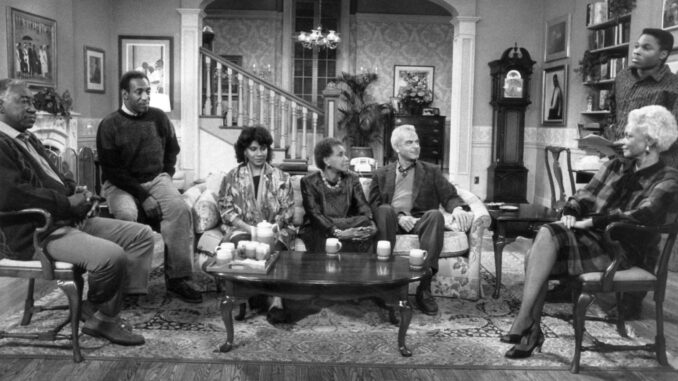
When The Cosby Show premiered in 1984, it redefined the landscape of television, introducing viewers to the vibrant lives of the Huxtable family.
Blending humor with poignant social commentary, the show became a cultural touchstone that resonated with audiences across the nation, forever altering the portrayal of African American families on screen. At the heart of The Cosby Show was the charming and relatable Huxtable family, led by the indomitable Cliff (Bill Cosby) and the elegant Clair (Phylicia Rashad). The show was revolutionary, showcasing an affluent African American family that defied stereotypes and celebrated the complexities of modern life. Cliff’s playful wisdom and Clair’s fierce intelligence made them not only a loving couple but also role models for viewers.

The Huxtables became a symbol of pride and representation, inspiring countless viewers to pursue their dreams and challenge societal norms. As much as The Cosby Show is celebrated, it also exists in a complex legacy. The show’s impact has been overshadowed by the serious allegations against Bill Cosby, sparking debates about how we reconcile our affection for art with the actions of its creators. While the Huxtables brought joy to many, the darker chapters of Cosby’s life serve as a reminder of the complexities that often accompany fame.
Despite the controversies surrounding its star, the themes of love, family, and resilience that The Cosby Show portrayed remain timeless. The laughter shared around the dinner table, the lessons learned through life’s ups and downs, and the unwavering support of family continue to resonate today. The Huxtable family’s journey reminds us of the importance of community, understanding, and empathy.
The Cosby Show was more than just a sitcom; it was a groundbreaking exploration of family and culture that captured the hearts of millions. Its legacy is one of laughter, love, and complexity, reminding us that the stories we tell shape our understanding of each other. As we reflect on this iconic series, we acknowledge both its achievements and its challenges, celebrating the impact it has had on television history and on the lives of those who watched it.
